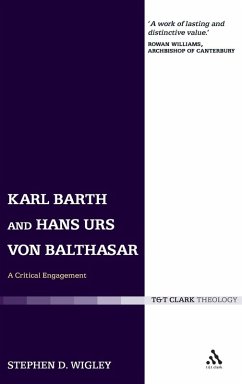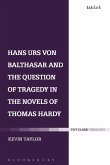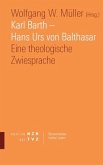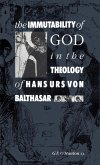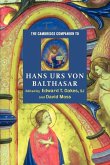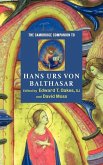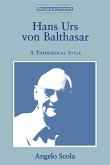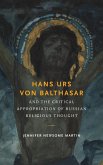Two of the most important theologians of the last century, Karl Barth and Hans Urs von Balthasar, one a Protestant and the other a Catholic, kept a lifelong friendship which also influenced their theological work. This book argues that it is von Balthasar's debate with Barth over the analogy of being which is to determine the shape of von Balthasar's subsequent theology.>
Karl Barth and Hans Urs von Balthasar are two of the most important theologians of the last century. Although one being Reformed and the other Catholic, they kept a lifelong friendship which also influenced their theological work. The book argues for the crucial influence of von Balthasar's meeting with and study of Barth for the emergence of his own great theological trilogy, beginning with The Glory of the Lord, continuing with the Theo-Drama and concluding with the Theo-Logic. In particular it argues that it is von Balthasar's debate with Barth over the analogy of being which is to determine the shape of von Balthasar's subsequent theology, structured as it is around the transcendentals of being, the beautiful, the good and the true.
Karl Barth and Hans Urs von Balthasar are two of the most important theologians of the last century. Although one being Reformed and the other Catholic, they kept a lifelong friendship which also influenced their theological work. The book argues for the crucial influence of von Balthasar's meeting with and study of Barth for the emergence of his own great theological trilogy, beginning with The Glory of the Lord, continuing with the Theo-Drama and concluding with the Theo-Logic. In particular it argues that it is von Balthasar's debate with Barth over the analogy of being which is to determine the shape of von Balthasar's subsequent theology, structured as it is around the transcendentals of being, the beautiful, the good and the true.

